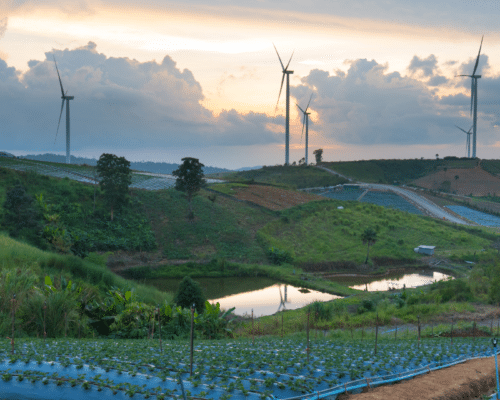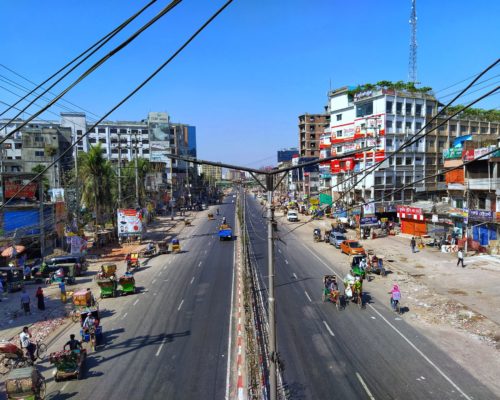Japan Puts the G7 Climate Leadership at Risk
20 November 2023 – by Viktor Tachev Comments (0)
Japan has gradually become the odd one out at the G7 table regarding climate leadership. Its commitment to extending the life of fossil fuels has not only turned it into a climate villain in the eyes of the public but has also attracted criticism from the rest of the group. If the G7 is to live up to its role, it should address Japan’s hesitance to escape the grasp of the fossil fuel lobby and find common ground regarding energy transition technologies.
Japan and the G7: A Story of Division
In April, before the G7 ministerial meeting, a French official explained that there was a “very strong unity among the other G7 members to avoid any and all language favourable to fossil fuels and gas exploration”.
Fast forward to October, Iwata Kazuchika, Japan’s state minister of economy, trade and industry, noted that, as the president of the G7, Japan was “issuing a clear message regarding the importance of LNG” as a transitional energy source.
Nothing highlights the strong division lines and the lack of unity on key energy transition topics within the G7 more clearly.
Moreover, Japan lacks concrete plans to phase out coal. Japan remains the only G7 nation planning to build new coal plants. The Japanese government has been reluctant to bring forward the G7 2022 agreement to decarbonise the group’s respective power sectors by 2035.
Furthermore, Japan has been actively trying to get other G7 nations on board with untested energy technologies as part of its GX strategy, which experts describe as “a greenwashing exercise” and “expensive and very dirty”. Among them are clean coal and hydrogen and ammonia co-firing schemes, as well as proposals for increased LNG investments.
Japan’s proposals come despite calls from the Academies of the G7, the body’s scientific board, for stronger decarbonisation efforts and a rapid transition from fossil fuels.
Japan’s fixation on fossil fuels and its “clean coal” plans have been heavily criticised by the rest of the group. Furthermore, G7 leaders have challenged the country’s GX strategy, reportedly blaming it for prolonging the use of fossil fuels. Yet, in the end, the rest of the G6 backed Japan’s proposals.
The Risks of Japan’s Actions to the G7 and the Country’s Climate Leadership Role
History shows that the G7’s leadership on climate change hasn’t been perfect – from the USD 100 billion in financial aid to developing nations that was promised but never delivered to the failure to find common ground on phasing out fossil fuels.
Moreover, between 2020 and 2022, the G7 provided at least USD 73 billion in public financing for fossil fuel projects. This is more than double the USD 28.6 billion that went to clean energy.
Fostering an Image of Indecisiveness, Not Leadership
The group has struggled to lead by example, even when it comes to essential yet integral tasks like setting a deadline for a coal phaseout. Climate Analytics notes that the G7 is behind schedule on phasing out coal and gas – and a major reason for this is Japan.
The 2023 meeting has further highlighted the G7’s indecisiveness in tackling the roots of the climate crisis. Japan pushed to add its GX strategy’s questionable technologies to the G7’s final communique and succeeded. The rest of the G7 offered cautious support and noted that the technologies could be used if they “aligned with reaching a largely decarbonised power sector by 2035” and would “comply with limiting global warming to 1.5°C”.
The group’s failure to push back against Japan’s proposals is attracting public scrutiny from the public. Immediately after the 2023 meeting, leading civil society groups and market analysts jointly criticised the G7’s weak commitments, “riddled with loopholes”, that will allow more fossil fuel use and expansion. Major international religious organisations uniting over 600 million people from more than 190 countries wrote an open letter to the group. They expressed “grave disappointment that in a public communique, G7 leaders described public investment in fossil fuels as “appropriate”, called for an expansion of the gas sector and blocked an effort to commit to a domestic coal phaseout date of 2030″.
Other experts urged the G6 to push against Japan’s technology expansion across Southeast Asia. Over 120 organisations sent President Biden’s administration a letter urging it to oppose Japan’s gas expansion plans.
Another 140 groups from 18 countries sent Prime Minister Fumio Kishida a letter asking to stop expanding the use of fossil fuels and derailing Asia’s clean energy transitions.
The Asian Peoples’ Movement on Debt and Development in Front of the Japanese Embassy in Manila, Philippines, September 2022, Source: Fossil Free Japan
In that sense, Japan’s position on fossil fuels is eroding the G7’s credibility and raising doubts about its ability to lead the world in what is one of the most serious challenges of our time. The pressure on G7 countries to be more decisive and proactive is mounting, including from COP28’s president.
Being on the Wrong Side of History
Since 1900, the G7 has been responsible for 54% of global emissions. As leading nations, the group has a moral responsibility to lead by example. Its actions are integral to whether the global battle against the climate crisis succeeds or not.
The climate crisis is worsening by the day, and the poorest and most vulnerable are suffering its harshest impacts. According to Amnesty International, the climate plans of the G7 violate the human rights of billions of people.
Developing countries from Southeast Asia to Africa are calling on the G7 to help in addressing the roots of climate change and to speed up their decarbonisation efforts.
Without a stark U-turn in the G7’s stance towards fossil fuels and Japan’s questionable technologies, the group will continue to put those countries at risk.
Energy Insecurity Issues
Energy security has been central to G7’s agenda. While the group advocates for a strong focus on building clean energy capacity to overcome energy insecurity woes and ensure resilient energy systems, especially in the context of Russia’s war, not all are on the same page.
Japan’s reliance on fossil fuel imports to meet 96% of its energy needs makes it the weak link in G7 discussions on energy security. The country is the world’s leading LNG importer and views LNG as a sustainable fuel integral to its clean energy transition. The natural gas and LNG investment proposals also oppose the IEA’s net-zero scenario recommendation that there should be no new exploration.
This is partly why analysts consider Japan’s efforts as an “obstacle” in the G7’s energy transition agenda.
“Energy security and climate security are one and the same. The key to ensuring them is switching to renewables. You can’t embargo or shut off the sun or wind. The G7 should push to improve the 2035 power sector commitments and oppose the ammonia co-firing proposals and the additional investments in gas infrastructure.”
Alden Meyer, Senior Associate at E3G
The G7 Can Pressure Japan to Switch Focus
Japan continues to actively undermine the G7’s attempts at climate leadership. The country has the least ambitious targets in the group and maintains sluggish progress on climate issues.
In April, Japan tried to place collective responsibility on the rest of the G7, claiming that the group had to help emerging countries reduce emissions. All this while trying to dump its fossil fuel-based technologies on developing Asian countries.
But, Japan isn’t the only one to blame here. Other G7 nations must also act. In May, the G7 urged all parties whose targets or long-term low GHG emission development strategies weren’t aligned with a 1.5°C target and net zero by 2050 to introduce more ambitious targets well before COP28.
Yet, according to Climate Action Tracker, if all countries followed Japan’s approach, the world would have been on track for warming of over 2°C and up to 3°C.
In the words of David Ryfisch from Germanwatch, “How will G7 countries lead if they aren’t making any measurable progress on their long-term commitments?”
In order to secure a liveable future, the world needs the G7 to deliver on its commitments. More specifically, the members should stand up to Japan and fight for solutions that will tame the climate crisis, not exacerbate it.
COP28 As a Chance For the G7 and Japan to Change Course
According to Makiko Arima from Oil Change International, Japan must change course and not hold back the rest of the G7 nations in the crucial fight against climate change.
However, this change isn’t likely to be self-driven since experts warn that Japan has a strong interest in maintaining the status quo due to its strong fossil fuel lobby. That is why the other G7 nations must demonstrate a firm position on Japan’s GX strategy technologies and get it on board with concrete coal phaseout plans, increased renewable energy adoption plans and limited investments in gas infrastructure.
While Japan held the G7 back at Hiroshima, at COP28, the group can collectively urge the country to take more ambitious climate actions.
by Viktor Tachev
Viktor has years of experience in financial markets and energy finance, working as a marketing consultant and content creator for leading institutions, NGOs, and tech startups. He is a regular contributor to knowledge hubs and magazines, tackling the latest trends in sustainability and green energy.
Read more

